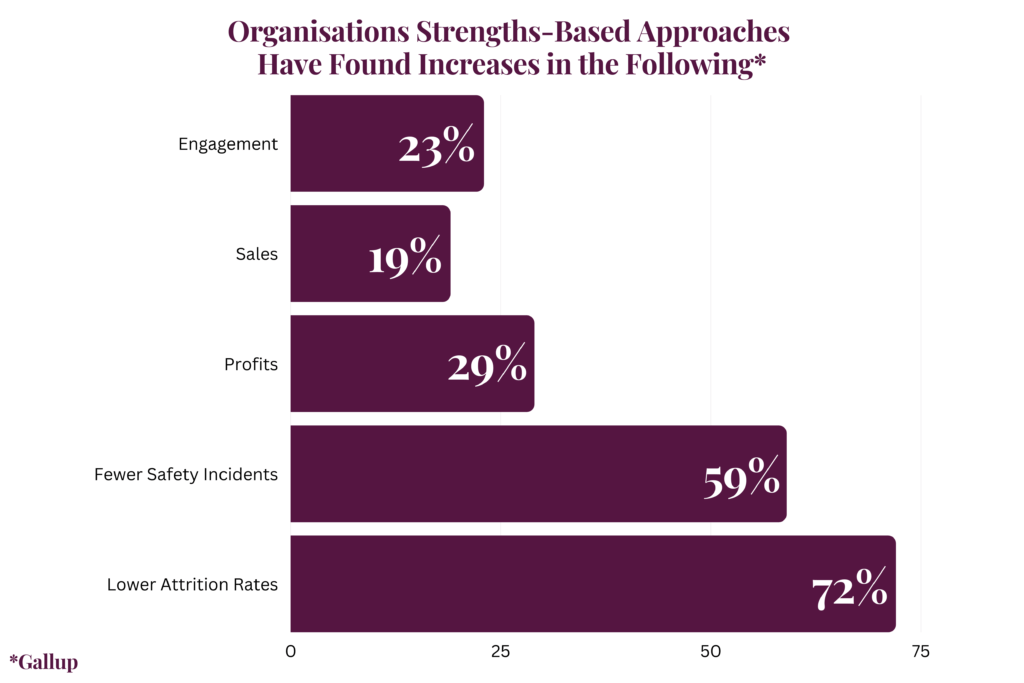Strengths-Based Work Culture
In today’s fast-paced work environments, organisations must foster a strengths-based work culture to maximise results and ensure consistency across their teams.
In essence, a strengths-based approach is all about recognising and utilising unique talents and the abilities of individuals within the organisation to create a productive and customer-centric workplace.
So, how can you determine if your organisation has a strengths-based approach?
Here are some key indicators to look out for:
- Employees must have the opportunity to use their strengths every day. The organisation must recognise and allow employees to leverage their unique qualities to perform their tasks efficiently and effectively.
- Team members must know and understand each other’s strengths. This understanding will help to build strong relationships and collaboration within the team, as they can complement each other’s abilities.
- Team members should be able to see the connection between strengths and success. This connection will help them to understand the value of their unique skills and how they contribute to the organisation’s overall success.
- Everyone must have partnerships that support the development of their strengths. The organisation must provide opportunities for employees to develop their strengths through coaching, training, and other development initiatives.
- Team members should use their knowledge of each other’s strengths to plan and direct actions. This collaborative approach will help to create a more efficient and effective team environment.
- Managers should use individual strengths to set goals and clarify expectations. This approach will help to align individual strengths with the organisation’s goals and objectives.
- Managers must understand how each team member’s strengths connect to their role. This understanding will help managers assign tasks that align with each individual’s strengths and will, therefore, create a more productive and efficient workforce.
- Teams must be agile in responding to customer needs. This agility will help the organisation remain customer-centric and adapt to the ever-changing needs of the market.
According to Gallup, organisations implementing a strengths-based approach have reported increases in engagement, sales, profits, and fewer safety incidents and lower attrition rates. This evidence highlights the benefits of strengths-based cultures, particularly where individual differences are applied to make the organisation an efficient and productive, customer-centric business.

However, knowing your organisation’s strengths is not enough. Consultations, training, and practice are necessary to integrate strengths into the daily routines of the entire workforce. The most effective way to achieve this is by upskilling managers and leadership, who can then pass on their knowledge to their teams and ultimately present it to the customer. By adopting a strengths-based approach, organisations can create a culture that maximises results while ensuring consistency across teams.
Unlock your organisation’s potential, and discover the power of a strengths-based approach for your team. Start encouraging a culture of success today by contacting us here for a consultation.




